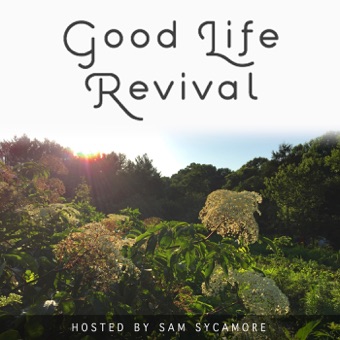
Good Life Revival: Permaculture, Rewilding, Homesteading
Sam Sycamore
The Good Life Revival Podcast documents the growing back-to-the-land movement of the 21st century, sharing stories, knowledge, and perspectives encountered on the path back to nature. Join host Sam Sycamore in exploring the ways that we can align our core values and our daily habits towards a more sustainable, ecologically conscious way of life. -How do we live life on our own terms in this era? -Is it possible to heal our domesticated minds and bodies by healing our degraded landscapes? -What does a lifestyle that's closer to the land really look like, and how do we pull it off in a practical, realistic way? -What is "the good life," and how do we attain it? These are the kinds of questions that we aim to answer - or at least to discuss in a compelling way! Visit thegoodliferevival.com to learn more.
- 10 minutes 6 secondsFinale. "The true state of all things is a waterfall"9 August 2020, 7:04 pm
- 13 minutes 50 seconds72. What are you doing with your life? Or; Angels and Demons at Play
What are you doing with your life?
What are you trying to accomplish? Where is this all going?
Do you even have a goal?
Do you have a retirement plan? Do you have a savings account? What happens when you get sick? What are you going to do when your truck breaks down on the side of the road?
When are you going to become a productive member of society?
22 November 2019, 6:08 am - 1 hour 5 minutes71. The Art of Inner Tracking with Luke McLaughlin of Holistic Survival School
Luke McLaughlin doesn’t want to teach you wilderness survival skills. He wants to guide you through the process of remembering your ancestral human nature.
Make no mistake — though he’ll tell you that the technology typically amounts to little more than “playing with bones and stones,” these rhythms and motions that our ancestors honed across countless millennia can show us what it really means to be a human animal — an integral participant in the ecological unfolding of a place.
The beauty of this practice lies in its immediacy, and its universal applicability: whether your local jungle is composed primarily of plants or concrete, these primal living skills are accessible to all of us.
For episode 71 of the Good Life Revival Podcast, I caught up with Luke to discuss his recent transition from rural woodland living to the mean city streets of Asheville, North Carolina.
What does it mean to be a primitive skills instructor in the heart of the city? Though Luke’s work these days is primarily focused on the hard skills, he also brings to the table many years of experience in wilderness therapy, so he knows how potent wildcrafting can be as a tool for emotional and spiritual self-improvement.
The main thread running through our conversation is the art of “inner tracking” — the mental and emotional skillset required to navigate through our own conscious experiences in a world that’s fundamentally misaligned with our animal nature.
It’s always a pleasure to hear from Luke, and I really enjoyed our “cross-pollination” here, to borrow from his vocabulary.
Stream and download episode 71 at the top of the page, or listen through iTunes, Spotify, Stitcher, or Google Play! Don’t forget to subscribe!
NEW! To hear my final thoughts on our conversation, check out this bonus podcast episode exclusively for Patreon subscribers:
71.5 - A Self That Touches All Edges
Check out my photo tutorial on eating acorns right here.
Score a free audiobook today when you sign up for Libro.fm using my referral link!
All music was created by Sam Sycamore, and can be downloaded by subscribers at any level over on Patreon. If you’d prefer to offer a one-time financial contribution, you can do so through PayPal. This show is made possible by listeners like you.
19 November 2019, 11:22 pm - 1 hour 1 minute70. How and Why to Eat Acorns - A Step-by-Step Foraging Tutorial
The acorn is one of the most common and ubiquitous nuts you’re likely to encounter almost anywhere in the Northern Hemisphere in autumn.
Somehow, tragically, the vast majority of people on Earth today think of acorns as little more than “squirrel food,” despite the fact that they are easily rendered edible for humans after some basic processing.
In fact, if we lived in anything approaching a sane, rational culture, acorns would be a staple in our daily diets around the world, as ordinary as white bread.
Thankfully, there’s no massive cultural paradigm shift required in order to reclaim this delicious and highly nutritious ancestral food in your own life.
All you need is time, patience, and some basic guidance through the process.
That’s where this podcast comes in: for episode 70 of the #GoodLifeRevival Podcast, we’re going to review everything you need to know to begin gathering and eating acorns this season!
Along the way I will answer questions like:
Why would anyone want to eat acorns?
What’s the difference between white oaks and red/black oaks?
What is the best method for gathering, and how can you tell if an acorn is no good?
How do you remove the tannins in order to make acorns edible?
What’s the best way to prepare acorns to eat?
And much more!
Nothing brings me greater joy than teaching others how to make use of the common wild foods found all around us throughout the seasons.
I truly believe that sharing the knowledge of how to eat acorns is one of the most valuable things that I can do with my time, and I hope that this audio tutorial will turn you into an evangelist for the cause, too.
This episode serves as a great example of the kind of tutoring I offer on a one-on-one basis through my Wild Food Mentorship — there’s still time to apply before the October 31 deadline, but spots are filling up quickly! Be sure to submit an application here if you are interested.
Stream and download episode 70 at the top of the page, or listen through iTunes, Spotify, Stitcher, or Google Play! Don’t forget to subscribe!
Score a free audiobook today when you sign up for Libro.fm using my referral link!
All music was created by Sam Sycamore, and can be downloaded by subscribers at any level over on Patreon. If you’d prefer to offer a one-time financial contribution, you can do so through PayPal. This show is made possible by listeners like you.
17 October 2019, 4:13 pm - 47 minutes 21 seconds69. Climate Change Grief Pt. II - Visions, Wildfires, and the Children of Compost
Whether the status quo is prepared to admit it or not, climate change is not some mysterious future event looming on the horizon — it is already happening, here, now.
So: how will you choose to respond?
In this episode of the Good Life Revival Podcast, I revisit last week’s topic of climate change grief, and whether we ought to let go of the hope of salvation in favor of taking direct action to brace ourselves for what we know we can reasonably expect from a severely disrupted global climate.
One crucial part of the process of preparing ourselves, I believe, is to reckon with our emotional reactions to what is unfolding in front of us. To deny the pain that we all feel when we observe the open wounds on the land that we walk upon is to numb ourselves to reality — to continue, in vain, to build a wall between ourselves and the natural world which sustains us.
Acknowledging and confronting the seemingly insurmountable pain of a dying planet should only imbue our work with that much more urgency.
Drawing from the writings of Steven Martyn, Kat Anderson, Trebbe Johnson and Donna Haraway, I make the case here that what we need now more than ever are visionary new myths to guide us towards novel ways and means of co-creation with the land.
We do ourselves no favors by merely hoping for a better world, or praying that our leaders will miraculously change course — recognizing that top-down solutions have failed to materialize, the time has come for us to begin self-organizing in the interests of preserving and regenerating whatever is within our reach.
All the while, we must not be afraid to stare down the very real existential fear that looms in the background. You are justified in your fear, but it is no excuse for inaction. You don’t get to choose what problems you face in life, but you can always decide how to feel about them. I hope you’ll join me in this difficult but necessary work.
Score a free audiobook today when you sign up for Libro.fm using my referral link.
Bibliography:
Anderson, M. Kat. Tending the Wild: Native American Knowledge and the Management of California’s Natural Resources
Haraway, Donna J. Staying With the Trouble: Making Kin in the Chthulucene
Johnson, Trebbe. Radical Joy For Hard Times: Finding Meaning and Making Beauty in Earth’s Broken Places
Martyn, Steven Elliot. Sacred Gardening: Seeds for the Reemergence of Co-Creative Agriculture
All music was created by Sam Sycamore, and can be downloaded by subscribers at any level over on Patreon. If you’d prefer to offer a one-time financial contribution, you can do so through PayPal. This show is made possible by listeners like you.
20 September 2019, 6:27 pm - 37 minutes 28 seconds68. Coping With Climate Change Grief - What Comes After Acceptance?
We’ve analyzed the data. We’ve seen the models and the projections. The facts are grim, and the reality on the ground (for some, not all — yet) is even grimmer still:
Global anthropogenic climate disruption is leading to social and political unrest as it causes ecological instability and begins to render regions of the planet inhospitable to humans.
Worse yet, recent history tells us that scientists knew essentially everything we needed to know about the catastrophic severity of climate change by 1988, when corporate interests in the United States successfully waged a campaign to suppress the truth and ensure that no action would be taken.
And still, thirty years later, no action is being taken, despite the fact that within this period — my lifetime — we’ve pumped more carbon into the atmosphere than in all centuries prior.
Are we ready to begin seriously grappling with the notion that…
…Maybe it’s too late?
What happens when we allow ourselves to grieve over a war that’s already been lost?
How does our perspective shift when we begin the difficult work of accepting that what’s done is done, and that there is perhaps no such thing as “saving the world” or “solving the climate crisis” after all?
I mean; you’re not just going to like, give up, are you? Are you going to wait around for someone else to do something about it?
What do you believe in? What is worth fighting for to you?
When we begin to accept that our planetary trajectory has already been set by forces well beyond our control, and allow ourselves to grieve over what’s been lost and what will be lost, then a different sort of action becomes all the more critical.
Far from engendering apathy, I believe that accepting the reality of our ongoing climate catastrophe is a resounding call for visionary creativity, and for radical, unconventional action at the individual and community level.
Because what many people seem to miss is that the steps you could take to improve your life today — better caring for yourself, working to foster community resilience, regenerating land and treading lightly on the Earth — are the very same things that may enable you to weather the unforeseeable storms on the horizon.
When we accept the reality that it’s too late, we begin to see the importance of radical, decentralized action. Not because we believe we’re going to save the world and solve the climate crisis; but because we have good reasons to believe that what’s bad will continue to get worse, and that every single one of us may potentially face a situation, or many situations, in the not-so-distant future when our resilience is challenged, whether randomly or routinely.
Even if that day never arrives, we will still be better off for our efforts to rebuild, reconnect, and do whatever we can to protect what’s not yet lost — if for no other reason than the Earth is worth fighting for, to the very end.
11 September 2019, 11:12 pm - 1 hour 23 minutes67. Uncovering America's Hidden Empire with Historian Daniel Immerwahr
Picture, in your mind’s eye, a map of the United States of America. What do you see?
If you’re like most of us, you’re probably picturing an outline of the contiguous United States, the so-called “lower 48.” You might also be picturing Alaska up there in the top left corner, and Hawai’i somewhere out there in the Pacific.
Now let me ask you:
Why were you taught that this is an accurate representation of the United States?
As the historian Daniel Immerwahr points out in his book How to Hide an Empire, this “logo map” really only accurately depicted the United States for a brief period of a few years around 1850.
What that map hides speaks volumes about the history of the American Empire over the last 150 years.
For episode 67 of The Good Life Revival Podcast, I had the pleasure of speaking with Daniel Immerwahr about some of the stranger-than-fiction stories that characterize America’s unique brand of imperialism.
As you will hear, the term “empire” is both a description of a country’s shape and of its character — and we can learn a lot by observing how it treats land and people in places where its own laws and ethics don’t always apply.
How do we characterize the American Empire?
Well, how you feel about it probably comes down to how much you know about those stories that it doesn’t tell you.
And if you are not counted among those who have been historically oppressed on the fringes of society, then it’s up to you to seek out these stories for yourself.
I hope that this conversation, and the book How to Hide an Empire, will encourage you to do just that.
Score a free audiobook today when you sign up for Libro.fm using my referral link!
4 September 2019, 2:51 am - 13 minutes 58 seconds66. Explaining Nothing, Defending Nothing - Behind the Scenes with Sam Sycamore
I dream of a quiet man
who explains nothing and defends
nothing, but only knows
where the rarest wildflowers
are blooming, and who goes,
and finds that he is smiling
not by his own will.
"I Dream of a Quiet Man" by Wendell Berry, from Given.
22 August 2019, 6:33 pm - 1 hour 18 seconds65. Rainwater Harvesting for Adaptive Habitats with Rob Avis of Verge Permaculture
Rob Avis is a petroleum engineer-turned-permaculture designer with many years of boots-on-the-ground experience in developing regenerative living systems. He runs the Canadian design company Verge Permaculture, as well as the consulting firm Adaptive Habitat.
For this installment of the show, Rob joins me to talk about Essential Rainwater Harvesting, the book that he co-authored with his wife Michelle, released earlier this year.
If you're curious about getting started with rainwater harvesting, whether for irrigation, washing, drinking, or all of the above, I think this conversation will serve as a great primer!
Among other things, Rob walks me through all of the basic components of a catchment system and how to approach the design process. We also talk about the importance of seeking out high-quality information in a world thoroughly saturated with poorly researched blog posts and YouTube videos and the like. I hope you find it as helpful as I did!
1 August 2019, 2:36 pm - 1 hour 13 minutes64. Partnering with Powerful Trees - How and Why with Akiva Silver of Twisted Tree Farm
Akiva Silver is the owner of Twisted Tree Farm in New York, where he raises over 20,000 individual trees annually — no small feat as a sole proprietor!
Earlier this year, Akiva published Trees of Power: Ten Essential Arboreal Allies via Chelsea Green, and this is one of those books that, for me, strikes a perfect balance between the practical and the philosophical. You’ll learn not just how but why to foster co-creative relationships with some of the world’s most generous and abundant tree species, whether your desired outcome is fruit, nuts, fuel, timber, or medicine.
Or: what if there was no desired outcome at all? What if the true value of working with trees was to be found simply in the daily unfolding of life in all its beautiful complexity? Understanding that “the good life” is located in the Here and Now, how do we fully embrace the present moment and eschew delaying gratification for years or decades as we wait for our tree crops to bear fruit?
I think Akiva’s story offers us a lovely lesson in the art of contentment: working for today, not tomorrow.
17 July 2019, 2:57 pm - 41 minutes 12 seconds63. The Collapse is Not Your Fault: Climate Change and Near-Term Human Extinction
There is no debate: our planet’s rapidly changing climate is now a fact of our everyday lives.
Unpredictable and extreme weather events are becoming more common and more frequent worldwide, and both their unpredictability and their extreme nature is increasing over time.
Flood waters rise higher, tropical storms blow harder, droughts last longer and wildfires burn with more intensity, and all of the above happens more frequently and in seasons when we would not expect any of it to occur.
We know that we are currently witnessing what’s described as the earth’s sixth mass extinction event.
The last time such an event occurred, to the best of our knowledge, was when the dinosaurs went extinct 65 million years ago.
The last time the Earth experienced changes in climate as dramatic as what we are witnessing today coincided with an earlier mass extinction event, some 250 million years ago, which is believed to have essentially wiped the slate clean and killed off up to 97% of the Earth’s species at the time.
Species are disappearing and ecosystems are collapsing as global weather events defy predictable patterns and the rise in average temperature accelerates.
One of the key themes that I continuously explore through this podcast is the idea that human culture is a reflection of its environment.
Thus, it is my belief that we are currently witnessing the collapse of human civilization due to rapid and catastrophic changes to the global ecosystem caused by civilization itself.
Humans are responsible for our rapidly changing climate and our rapidly declining ecosystems.
But not all humans, and not just any humans.
A relatively small group of civilized humans who worship at the altar of the limitless free market did this.
100 corporations are responsible for over 70% of greenhouse gases emitted in my lifetime, since the mid-80s.
More than half of all emissions can be traced back to just 25 corporate entities.
So please, explain to me again why I personally should feel guilty for drinking out of a disposable coffee cup or using a plastic toothbrush or showering with hot water for more than 5 minutes.
Your decision to drive an electric car or eat less meat has no effect on the system as a whole.
Individual consumer choices are essentially irrelevant when stacked against the consumption of energy by corporations and governments.
You did not cause climate change, or the sixth mass extinction event, and you will not solve them through your individual choices as a consumer.
If consumption itself is the problem, then we are never going to solve it by consuming more stuff, even if that stuff is significantly less bad than the more conventional stuff.
Will anthropogenic climate disruption inevitably lead to the extinction of Homo sapiens? Only time will tell.
But for those of us who are tuned in, we can’t ignore the deafening silence from the canaries in the coal mine any longer.
18 June 2019, 6:10 pm - More Episodes? Get the App
Your feedback is valuable to us. Should you encounter any bugs, glitches, lack of functionality or other problems, please email us on [email protected] or join Moon.FM Telegram Group where you can talk directly to the dev team who are happy to answer any queries.
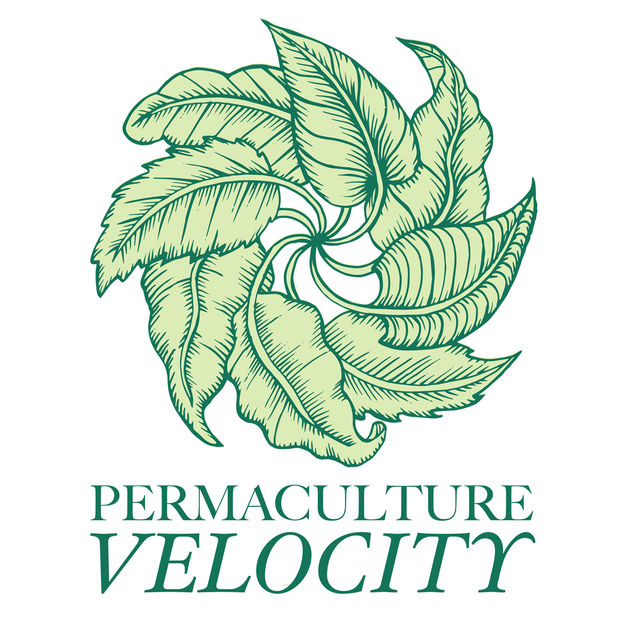 Permaculture Velocity | Homesteading Skills You Can Use
Permaculture Velocity | Homesteading Skills You Can Use
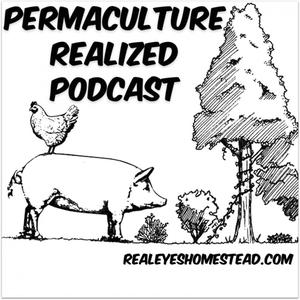 Permaculture Realized Podcast
Permaculture Realized Podcast
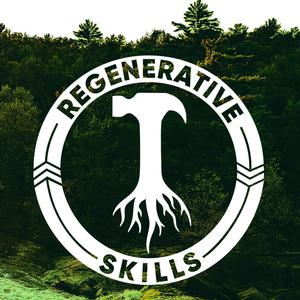 Regenerative Skills
Regenerative Skills
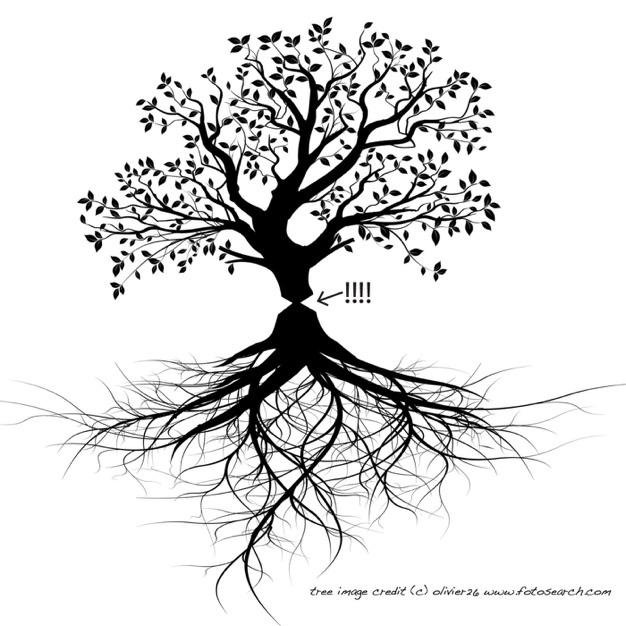 Making Permaculture Stronger
Making Permaculture Stronger
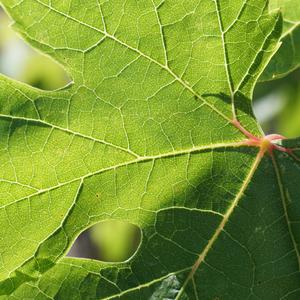 A Regenerative Future with Matt Powers
A Regenerative Future with Matt Powers